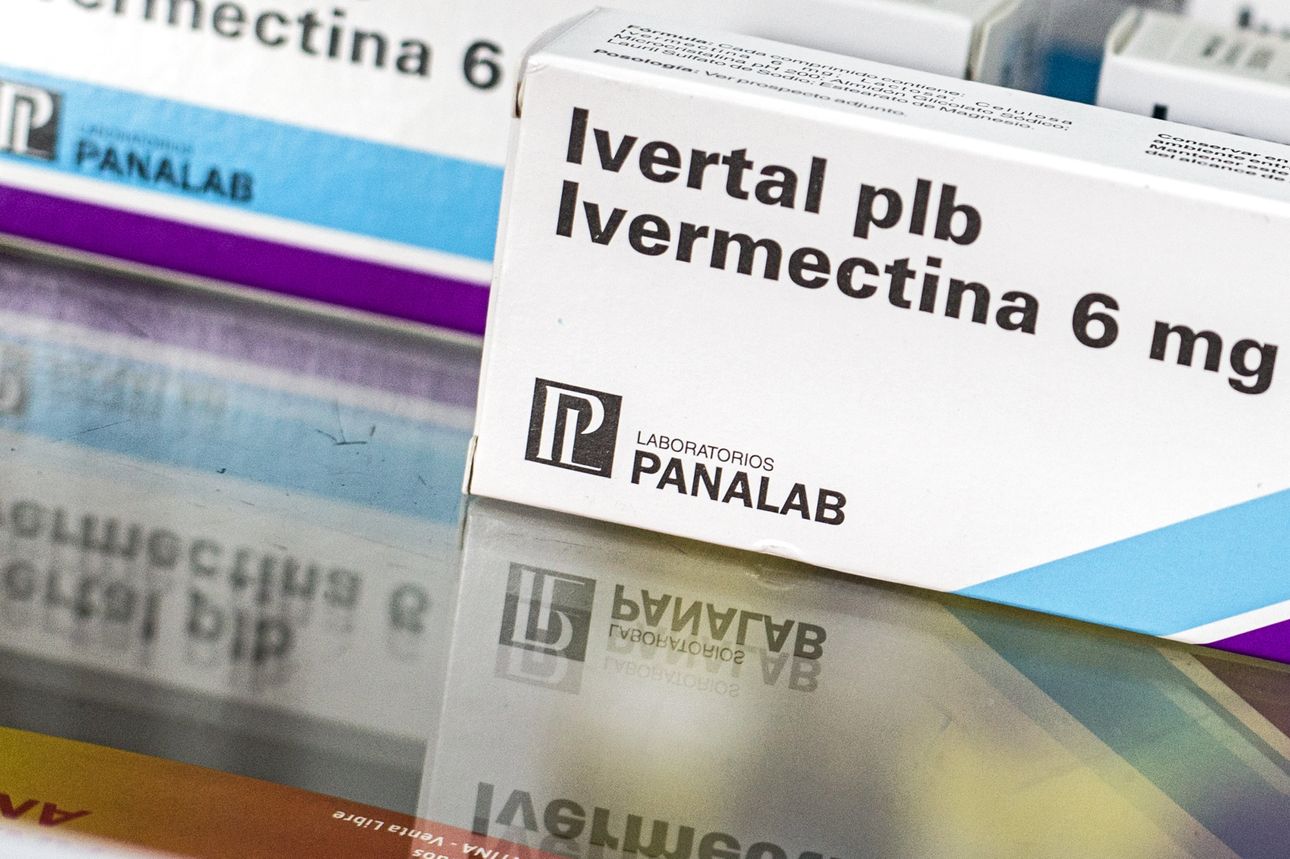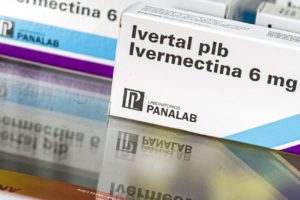

Not as much as you might think.
The Food and Drug Administration claims to follow the science. So why is it attacking ivermectin, a medication it certified in 1996?
Earlier this year the agency put out a special warning that “you should not use ivermectin to treat or prevent COVID-19.” The FDA’s statement included words and phrases such as “serious harm,” “hospitalized,” “dangerous,” “very dangerous,” “seizures,” “coma and even death” and “highly toxic.” Any reader would think the FDA was warning against poison pills. In fact, the drug is FDA-approved as a safe and effective antiparasitic.
Ivermectin was developed and marketed by Merck & Co. while one of us (Mr. Hooper) worked there years ago. William C. Campbell and Satoshi Omura won the 2015 Nobel Prize for Physiology or Medicine for discovering and developing avermectin, which Mr. Campbell and associates modified to create ivermectin.
These are the opening 3 paragraphs of David R. Henderson and Charles L. Hooper, “Why Is the FDA Attacking a Safe, Effective Drug?,” Wall Street Journal, July 28, 2021 (electronic) and July 29 (print.)
I’ll post the whole piece in 30 days. We found out last night, in response to some feedback, that one of the studies we quote was retracted earlier this month due to questionable data. We immediately drafted a letter last night to the Wall Street Journal stating that we retract our cites of that study.
The Wall Street Journal editor was quite responsive, adding this correction at the bottom:
Correction
This article has been edited to remove a reference to a study of 200 healthcare workers by Ahmed Elgazzar of Benha University in Egypt. Messrs. Henderson and Hooper relied on a summary of studiespublished in the American Journal of Therapeutics. They learned after publication that this study has been retracted because of charges of data manipulation.
Because we cited multiple evidence, though, we stick by the rest of the piece. Also, our main point, that, contrary to the FDA, ivermectin is incredibly safe, stands.

READER COMMENTS
Dylan
Jul 29 2021 at 5:33pm
Have not been able to read the whole thing, so I’m going to assume you cover this in your column, but because it isn’t here I’m going to mention that this seems like an interest of the dose maketh the poison. The levels you need to get to for it to even theoretically be useful in Covid, are well above the doses it was approved for.
And here is a review of the studies for ivermecitin in Covid, and the real world data doesn’t indicate a benefit. So, in summary, push the dose of an approved drug to levels that are likely not safe and you still have a drug that doesn’t appear effective against Covid, of course the FDA is going to put out warnings against it.
Alan Goldhammer
Jul 29 2021 at 5:44pm
I don’t read the WSJ so I do not have access to your op-ed. I have followed the ivermectin story since it was first advanced as a possible COVID-19 therapy last year. Unfortunately, the in vitro data showed the amount of ivermectin needed to elicit a ‘possible’ clinical effect was quite large and that it was not possible to obtain this level in vivo as the circulating levels of ivermectin can never get that high. While I cannot second guess why FDA posted the information that you linked, I suspect it might be that people would begin experimenting on themselves (ivermectin is also approved for veterinary purposes).
Perhaps the libertarian view that people should be allowed to try what ever drug they want (the story of laetrile is illustrative here) but that doesn’t mean the drug is safe or effective. FDA issues warnings such as the one you link to often. We already went through the debacle with hydroxychloroquine and there has not been a single ivermectin study that I have read that is sufficiently powered to demonstrate whether it is effective against COVID-19.
As Derek Lowe who writes the best blog on drug development and discovery said about ivermectin,
While the FDA has many flaws, this was not one of them. If you put on the armor, make sure you are not tilting against a windmill.
Ken P
Jul 29 2021 at 9:10pm
A counter example would be the mRNA Covid vaccines. Delaying the use of that drug cost >100,000 deaths in the US alone.
Phil H
Jul 29 2021 at 10:55pm
Scott Sumner has been writing interestingly about the question of “stay in your lane.” His view is that stay in your lane is overrated, and in fact there is lots of benefit when people examine evidence across disciplinary boundaries (specific context: economists looking at health issues during Covid).
I think this piece perhaps helps clarify what kind of getting-out-of-your-lane can be useful, and what kind may not be useful. The dosage issue noted by both Dylan and Alan above seems pretty fatal for the argument (at least the part quoted above). It sounds like the kind of technical error that healthcare specialists know to look for, and the rest of us probably don’t.
So my preliminary idea is that the kind of argument Alex Tabarrok has been making, which are data-based, rooted in his tried-and-tested economic methods, but applied to a new area, seem to have a lot of value. The argument posted here, which seems more like a direct attempt to do drug assessment better than the professional drug assessors, seems prima facie less likely to be fruitful. (Obviously this is all hindsight; I’m trying to work out what to learn from what I’ve seen over the last two years.)
Thomas Lee Hutcheson
Jul 30 2021 at 7:40am
It seems that the issue is not “scientific” or not “scientific” the FDA is. Rather how do they translate “scientific” conclusions into recommendations. (Spoiler alert: not very well).
In the case at hand it appears to an outsider that FDA has a finding that the use of ivermectin under certain circumstances and dosage levels has benefits greater than the costs but that the use under other circumstances and dosage levels the costs outweigh the benefits. [The “science” about the physiological effects of ivermectin in those circumstances and dosage levels could be wrong, of course.] It has come to FDA’s attention that some (many?) people are starting to use ivermectin in those ways in which the costs outweigh benefits. Its statement may not be the best way to convey its information about the harm from “misuse.” Hopefully the article will suggest a better way, perhaps that FDA make no statement at all.
Paul
Aug 4 2021 at 1:07am
By the way, my dermatologist told me to just get veterinary ivermectcin (used for dogs and horses) since it is very cheap and you can just buy it on Amazon, compared to the stuff for humans where you need a prescription and, right now, it is hard to obtain since everyone is trying it for Covid anywa. But it is just the same stuff.
Rodrigo Pinto
Aug 11 2021 at 5:43pm
Great article on the mismatch between the evidence on Ivermectin versus the FDA recommendation and the politicized public debate.
Currently, there are 62 epidemiological research papers on Ivermectin, 31 of those using Randomized controlled trials (see here and here for meta-analyses). In my opinion, the most impressive results come from policy evaluations using public health data. Regions in Mexico, Zimbabue, India and Argentina that adopted the use of Ivermectin observed a drastic reduction of cases of COVID (see discussion here).
Comments are closed.